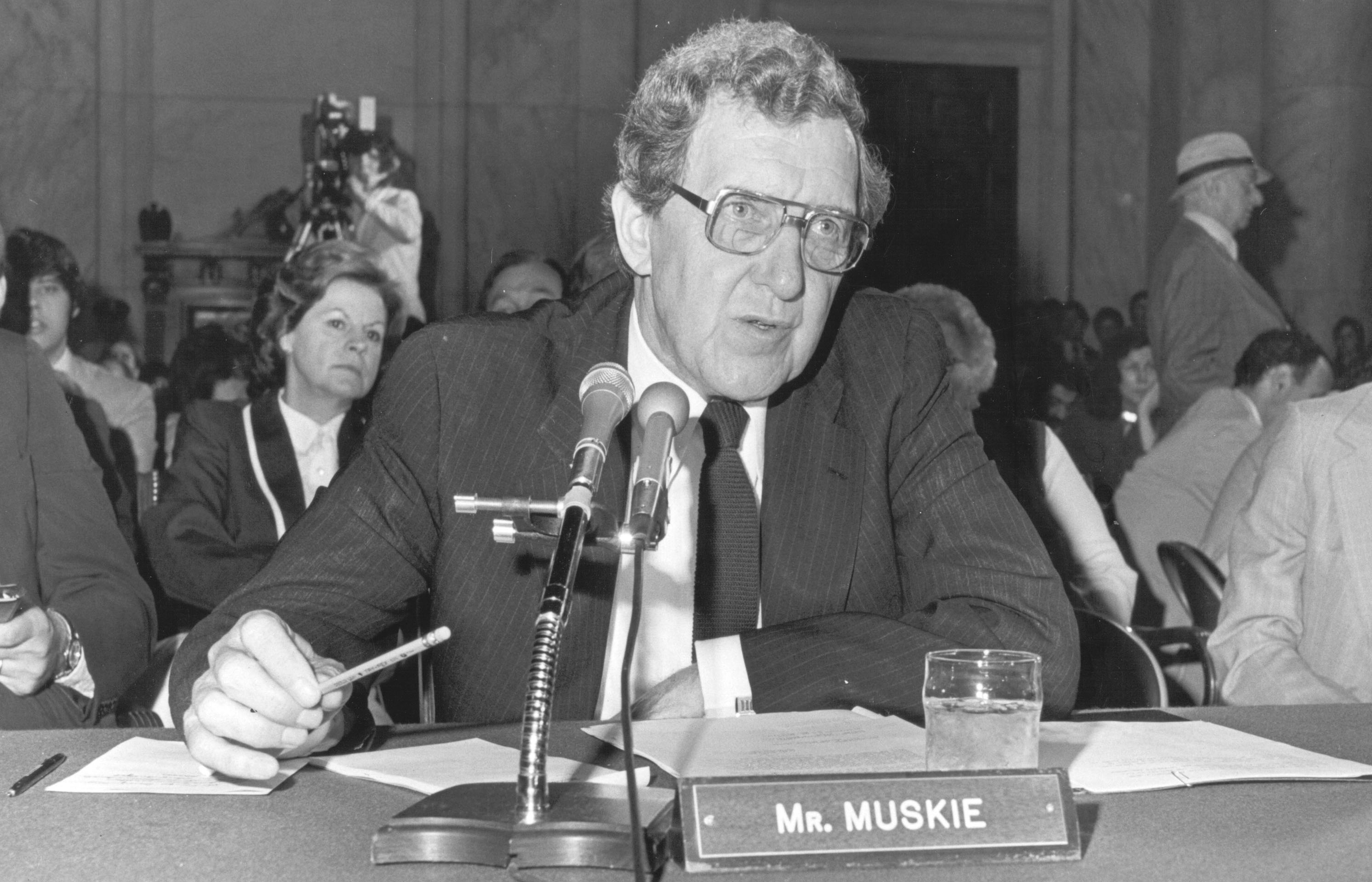
Edmund S. Muskie Oral History Collection
Document Type
Oral History
Loading...
Publication Date
3-29-1999
Interview Number
MOH 077
Abstract
Robert Clifford was born in Lewiston, Maine on May 2, 1937. He attended the public schools including Lewiston High School. He then went to Bowdoin College followed by Boston College Law School. He served in the Seventh Army stationed in Ludwigsburg, Germany. He then practiced law with his father, two brothers and a cousin. He served three one-year terms as alderman. He was president of the City Council from 1968 to 70. He was the mayor of Lewiston from 1971 to 1972. He served two terms on the Maine State Senate. He was chairman of the Lewiston Charter Commission from 1979 to 1980. He was appointed to the Maine Superior Court in 1979. He was First Trial Court Chief Justice of the Superior Court from 1984 to 1986. He was then appointed to the Maine Supreme Court.
Use Restrictions
Copyright Bates College. This transcript is provided for individual Research Purposes Only; for all other uses, including publication, reproduction and quotation beyond fair use, permission must be obtained in writing from: The Edmund S. Muskie Archives and Special Collections Library, Bates College, 70 Campus Avenue, Lewiston, Maine 04240-6018.
Recommended Citation
Burnham-Bestor, Marisa, "Clifford, Robert oral history interview" (1999). Edmund S. Muskie Oral History Collection. 88.
https://scarab.bates.edu/muskie_oh/88
Second part of interview
MOH_077_01_B.mp3 (19447 kB)
Third part of interview
MOH_077_Transcript.pdf (123 kB)
Transcript


Scope and Content Note
Interview includes discussions of: the Maine Democratic Party from 1952 to 1954; 1954 Maine gubernatorial campaign; Muskie’s first term as governor from 1955 to 1956; Muskie’s 1958 US Senate campaign; Muskie’s 1968 Vice Presidential campaign; Muskie’s 1976 Senate campaign; Muskie’s appointment to Secretary of State; environmental protection; urban planning and development; Vietnam; Model Cities in Lewiston; social clubs in Lewiston; a speech at Paul Dionnes’s inauguration; Maine Commission on Legal Needs; William Clifford, Sr.; John Clifford I and II; the Clifford family’s trek to the US; Lewiston and Bangor city halls; the “Clifford clique” as myth; the necessity of Democratic affiliation in Lewiston; municipal elections and politicians as typically being non-partisan over partisan; the old and new charters in Lewiston and the mayor’s role under each; changing the election date and term limit for Lewiston major; eliminate party requirements for boards; issues Clifford faced while alderman; fluoridation; the location of the Vietnam Memorial Bridge; budget; public works strikes; police and the “blue flu”; conservative Democrats in Lewiston; Klan activity in the 1920s; the elevated position of Mayor in Quebec; Maine Municipal Clerk and Lewiston City Clerk; a bill for Unicameral state government; criminal code revision of criminal laws; the Probate Revision Commission; impression of state politics as partisan; State vs. local politics; the first non-Franco- American mayor in 40 years; Brennan’s first Superior Court nomination in 1979; court cases; the evolution of Maine courts; Louis Jalbert; “As Maine goes, so goes the nation”; the 1936 presidential elections; impression of Frank Coffin; Kennedy being defeated in Maine in 1960; James G. Blaine and anti-Catholic legislation; Maine Democratic strongholds pre-Muskie; Thomas Delahanty’s career; Muskie/Hathaway tension; Democratic splits in Lewiston/Auburn; 1968 Maine caucus; Bates tensions; 1966 mayoral elections; Jalbert vs. Rocheleau; political personalities rather then ideology; Lewiston’s political reputation; Maine anti-Franco prejudice, Muskie as long-winded and Lincolnesque; Mitchell as Senator; and Cyrus Vances’s resignation from Secretary of State.